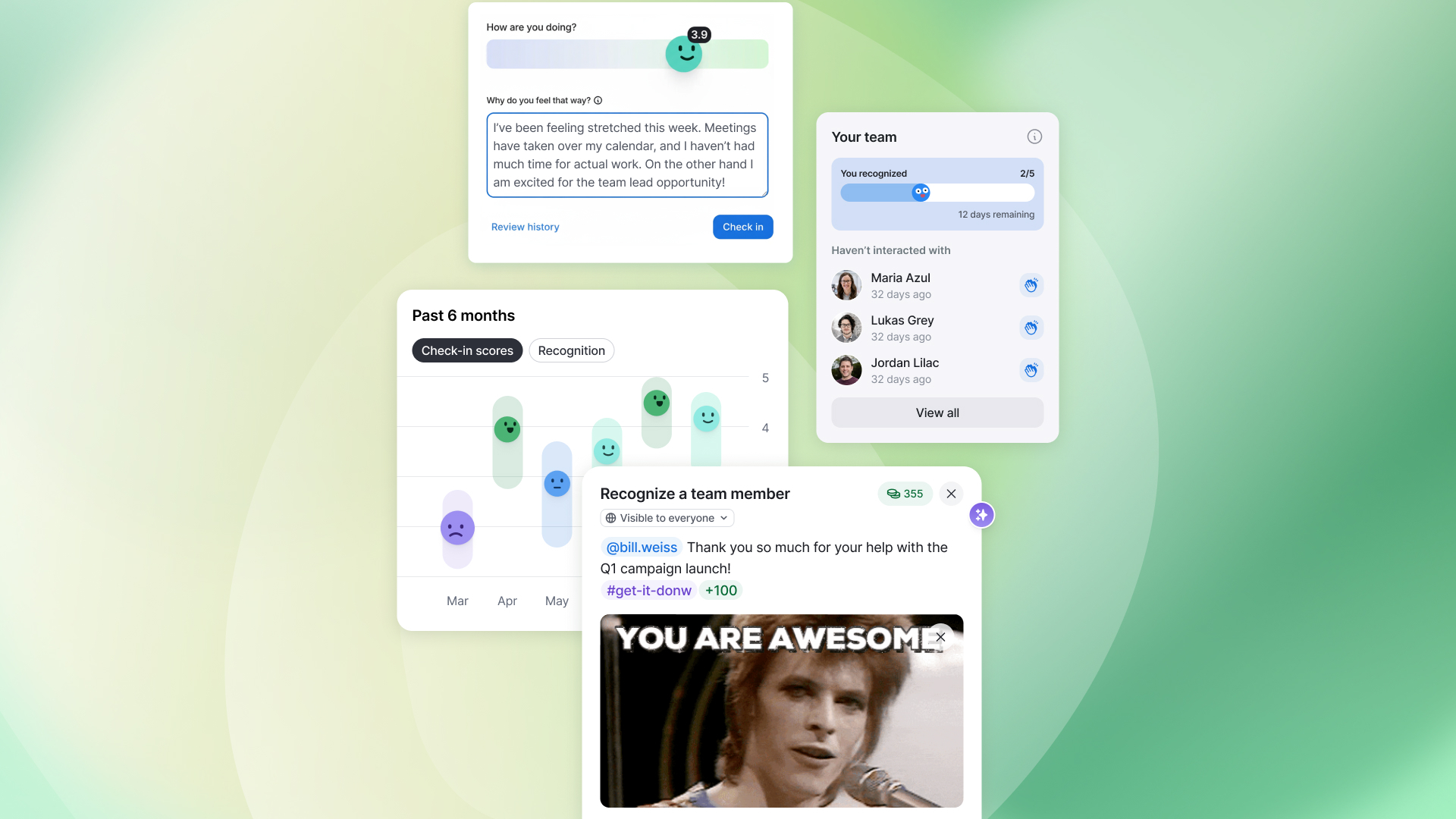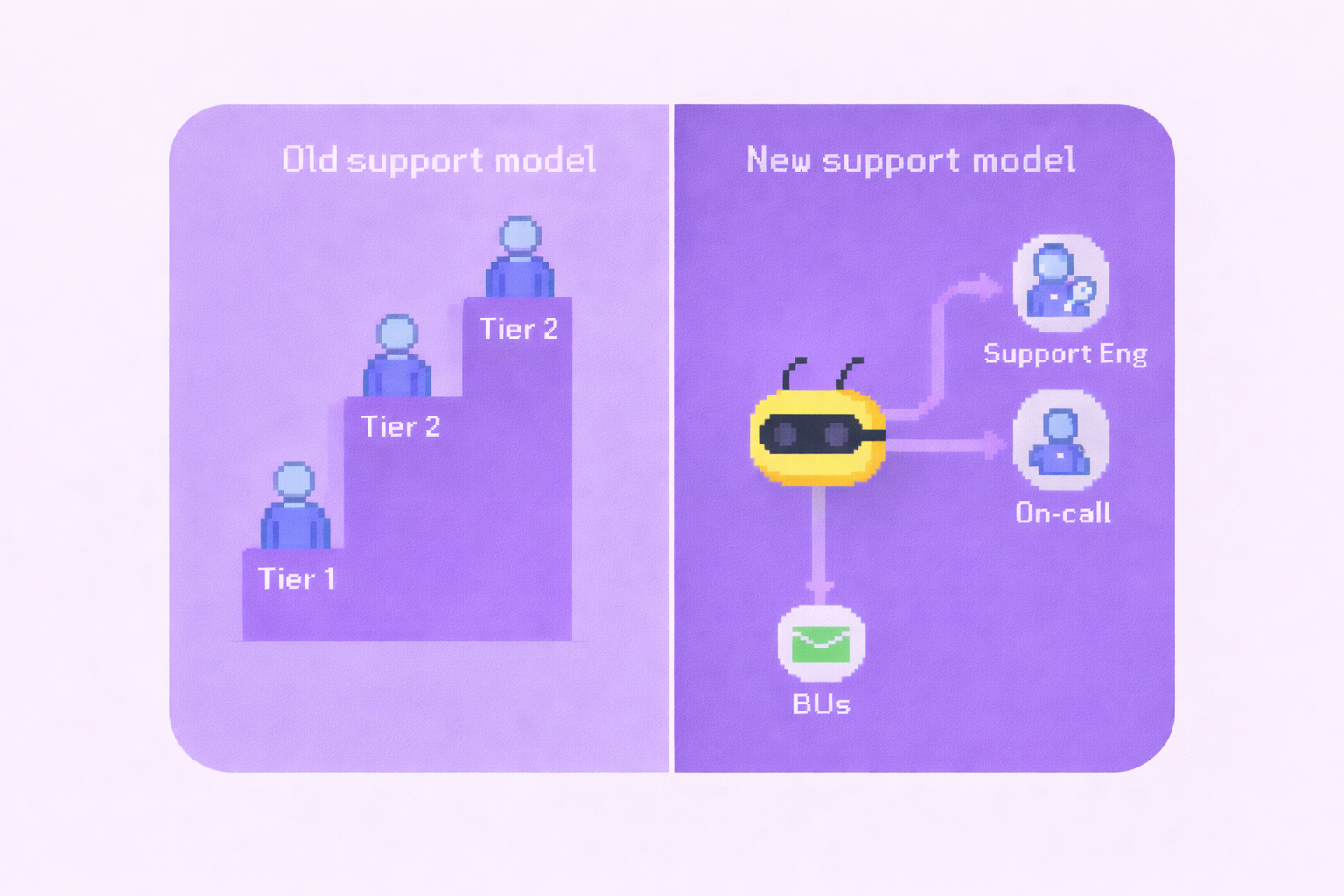How to Sell Employee Engagement to a Skeptic

Most leaders are aware of the powerful impact employee engagement has on their organization. Countless studies have been organized around the subject, each coming to the same conclusion: employee engagement is crucial to the health of an organization.
Despite these findings, some leaders are still skeptical that employee engagement can be beneficial. Here are a number of common objections to employee engagement that you're likely to run into—and some solid facts and figures that debunk them.
Objection 1: Engagement isn't easily measurable
This is generally a failure of planning and execution, rather than a failure of concept. It's true, there are a lot of employee engagement programs out there that aren't effectively measured, but that doesn't mean that engagement initiatives can't be measured.
There are a host of great tools you can use to measure the effects of an employee engagement initiative. In our own tool, we provide a host of insights, reports, and analytics to help you ensure that the resources you're devoting to engagement are well spent.
There are several other tools you can use to analyze the results of your employee engagement program. We use Bonusly Signals to regularly measure employee engagement at Bonusly.
Measurement is key in developing a program that actually produces results, but there is no lack of excellent tools to accomplish that. 📏
Objection 2: Engagement is just trendy/fluffy
Yes, it's true that employee engagement is popular amongst business leaders and HR circles. There's a reason for that: it has an incredible potential for impact, but survey after survey rate it dismally low in most companies. According to Gallup, just 36% of employees are engaged with their work.
Why is it important to move the meter? Several reasons. For one, employee engagement has shown in many cases to be a driver of business results.
Engagement = dollars: Every 1% increase in employee engagement indicates a 0.6% growth in sales, accordingly to Aon Hewitt’s 2013 Trends in Global Employee Engagement report. Applying this logic to a $5 billion company with a gross margin of 55% and 15% operating margin, a 1% increase in engagement would be worth $20 million."
- Edelman
It's not only worth noting that engaged employees can make a business more money. Disengaged employees cost a business money. How much? Between $450 billion to $550 billion in the United States alone, according to Gallup.
Objection 3: Engagement is going to be expensive
Yes. Absolutely. An employee engagement program has the potential to be really expensive, but usually only if it's ineffective. An effective employee engagement initiative will actually save money overall though. When considering the cost of an engagement program, it's useful to ask:
Is it going to be more expensive than turning over top performers?
It's extraordinarily expensive to hire and train new employees. Sometimes even after a new employee ramps, they're not going to perform at the same level of the long-standing employee you lost.
Is it more costly than missing out on opportunities to land top candidates?
Culture is a major element in hiring modern employees. Engagement is also an irreplaceable factor in the likelihood that your current employees will be willing to bring in referrals. If your current team feels a strong commitment to your organization, they're more likely to refer their network for roles at your organization.
Want our newest blog posts straight in your inbox? Sign up for our bi-weekly newsletter!
Objection 4: People should be engaged by their salary
Money can't buy loyalty, and it certainly can't buy engagement. Sure, it's absolutely vital to pay your employees a fair and equitable wage. The problem is, money is a fungible resource. Your salary dollars are worth exactly the same to an employee as your competitor's. The day they're willing or able to offer a few more of those dollars than you are, it's time to start drafting that job posting.
Culture is non-fungible. Engagement, and the emotional commitment to your organization that it embodies, are inherently non-fungible. If you're providing an extraordinary culture and work environment, the commitment that often inspires will be much harder to break, even in the face of a more tantalizing salary offer.
These are just a few of the reasons leaders should be working to improve employee engagement in their organization. In the face of these facts and figures, a skeptic would have a hard time dismissing employee engagement as a vital business goal.







